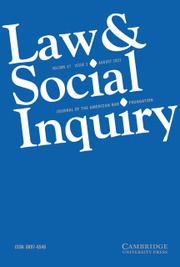From Law & Social Inquiry
For more than a century, a partnership position in a large corporate law firm has almost universally been held out as the singular mark of success for those with a law degree. We find that despite significant transformations in the profession, including dramatic expansion in size and the opening of corporate law positions to women, minorities, and the graduates of lower-ranked schools, the powerful and prestigious positions of corporate law partners remain largely reserved for those with the most elite credentials and other characteristics—male, white, wife at home—that defined law firm partners before the great period of change. By examining the continuity and change in the sorting of legal elites, we find evidence that the experience of a position in a corporate law firm now bestows advantages even for those who do not make partner. What was once deemed a failure—not making partner—is now a source of valued capital that leads to careers in in-house positions, boutique firms, the federal government, and a host of nonequity partner positions. We draw on thirteen years of lawyers’ career histories from the After the JD study, using the techniques of sequence analysis and qualitative interviews.

